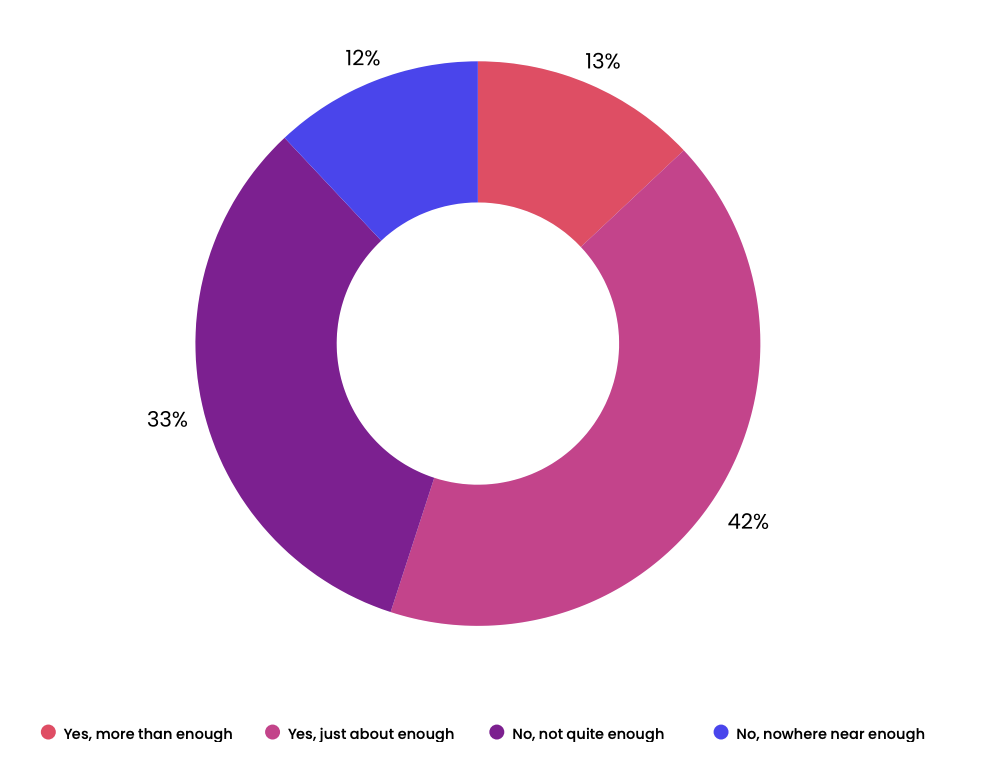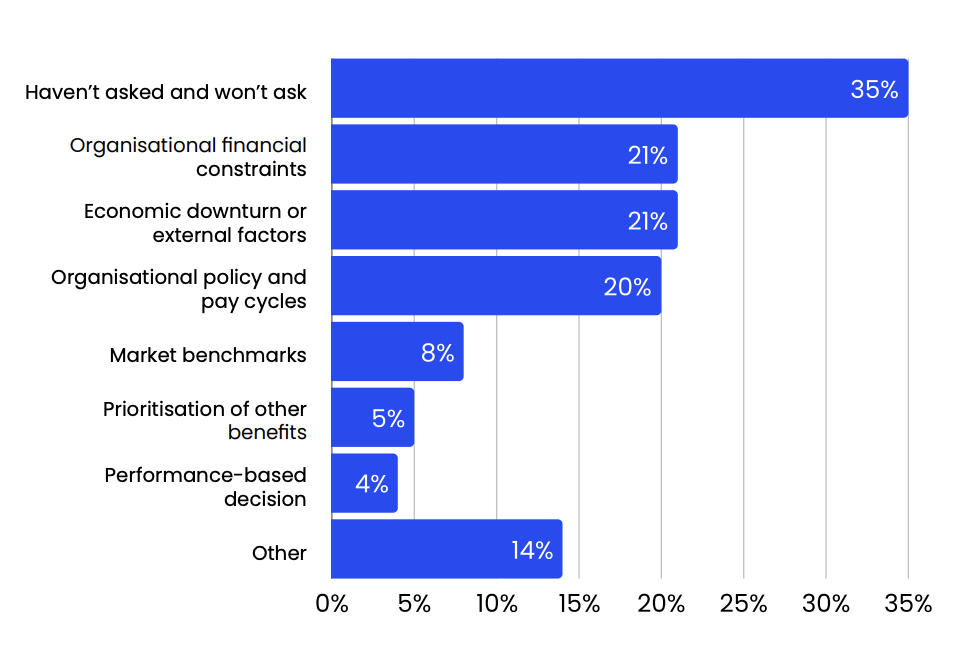
New report reveals rising financial concerns, job insecurity among Australians

Nearly half of employees in Australia feel their income is not enough, according to a new report, amid recent warnings on financial instability's impact on retention.
New research from ELMO Software revealed that 45% of Australian employees, equivalent to around 5.76 million workers, do not think their salaries are keeping up with the costs of living.
This comes despite 54% of the respondents saying they received a pay rise this calendar year, with another 18% expecting to receive one.
According to the report, employees are expecting a four per cent pay rise this year, lower than the five per cent planned salary increase as per HR professionals in another ELMO report.
On the other hand, 17% of employees said they haven't received and are not expecting a pay hike this year, with a third of them saying they haven't asked or won't ask for one.
One in four respondents also cited their organisation's financial constraints, as well as the economic downturn, as some of the factors why they haven't received a pay rise.
The findings come after recent reports indicated that financial instability is placing significant pressure on Australian employees.
Gartner's recent Global Talent Monitor showed that compensation is within the top three drivers of attraction and attrition in Australian workplaces.
Employers seeking to retain employees should look into what employees value beyond pay.
According to ELMO's report, the implementation of flexible work arrangements is one of them, as cited by 60% of the respondents. Other factors at work that they value are:
Joseph Lyons, CEO of ELMO Software, advised organisations that while short-term economic pressures are real, they shouldn't come at the cost of long-term strategy.
"Organisations that invest in flexibility, development, and fair pay now will be better positioned to retain talent and grow sustainably," Lyons said in a statement.
The decline in financial confidence in the workforce reflects the ongoing decline in their economic security, as noted in the report.
Only 33% of employees in ELMO's report feel that the economy is in a secure position, a massive drop from the 53% in the fourth quarter of 2024.
"At the same time, the proportion of employees who feel economically insecure has more than doubled – from 10% last quarter to 23%, highlighting growing financial unease amid broader economic uncertainty," the report read.
This external pressure is also triggering job insecurity in the workforce, according to the report.
It found that the number of workers worried about redundancy has surged from 28% to 43%, with 48% feeling they need to work harder or put in longer hours to keep their job safe.
"Job insecurity is rising – not necessarily because of what's happening inside organisations, but because of the uncertainty people are feeling more broadly," Lyons said.
"When employees feel financially stretched, it often shows up in their wellbeing, their energy, and ultimately their performance at work. It's a challenge people leaders can't afford to ignore."
Maggie Wooll, a former senior thought leader for BetterUp, previously outlined on its website seven strategies to reduce job insecurity in the workforce. They are: